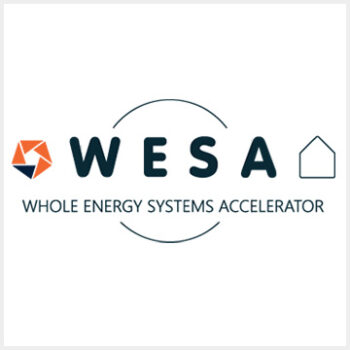A unique energy innovation test facility to accelerate innovation of net-zero products and services, reduce emissions, and drive economic growth.
Context
Households currently account for around 29% of the total energy used and 23% of carbon emissions in the UK1. Delivering the Government’s Net Zero emission targets will require huge changes for domestic consumers in how they heat their homes and how they travel. On average, this will require 20,000 households and 30,000 petrol and diesel car owners across the UK to switch to low carbon heating systems and electric vehicles every week between now and 2050. This will require the rapid development of new, desirable, low carbon products and services.
To transition our economy at the pace required, it is vital to understand the behaviour of consumers in their homes and the way this behaviour interacts with technology, policy, regulation and commercial models both in the residential sector and back through the networks to the wider energy system. It is also essential to ensure this new technology benefits all consumers and avoids creating new types of vulnerability.
New services, solutions and products are needed to drive the energy transition and deliver substantial economic value. The business opportunity in this area is estimated to be £30bn by 20502.
What is WESA?
Given the unprecedented rate at which new innovations need to be de-risked, validated, and future-proofed to deliver Net Zero, a representative real-world environment is needed to accelerate, test and demonstrate solutions across the whole energy value chain. The Whole Energy Systems Accelerator (WESA) provides this real-world innovation environment.
WESA involves the expansion and interconnection of two leading innovation facilities – the energy system demonstration capabilities at PNDC (University of Strathclyde) and the Energy System Catapult’s (ESC) Living Lab of consumers – to create a world-first, whole energy system innovation environment.
Connecting these two facilities and their combined simulation capability enables the interactions between activity in homes, energy networks and market structures to be tested in real-time in a range of controlled scenarios. This enables the physics, human behaviour, smart technology, energy networks, and market innovations to be tested concurrently and rapidly to create a robust and integrated physical and market environment fit for net zero; a real-world example of taking a systems approach to decarbonisation.
The scope and purpose of WESA is shown schematically in Figure 1.
Delivery Team and Partnership
PNDC and Energy Systems Catapult have strong reputations in energy systems innovation. This includes expertise and capabilities across electrical power systems, whole energy systems, cyber security, energy systems modelling, and consumer research. Both organisations can draw on a broad network of commercial and academic collaboration partners across all sectors of the energy industry.
Figure 1: The Whole Systems Energy Accelerator (WESA)

1 BEIS – UK Energy in Brief 2019.
2 Business opportunity in smart systems, heating & cooling, buildings, road transport, hydrogen & industry – estimated at £11bn by 2030 and £30bn by 2050
(BEIS Energy Innovation Needs Assessments 2019)

